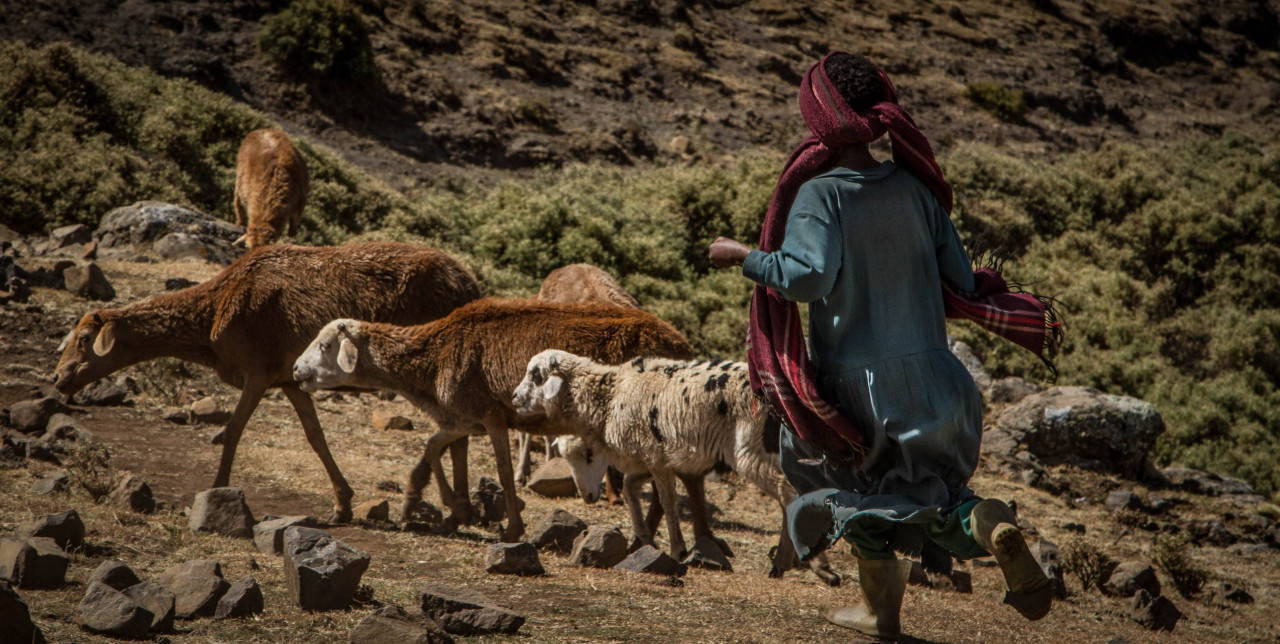11-08-2017 | di COOPI
Ethiopia: new economic opportunities
Ethiopia is mainly carachterized by dry, sub-humid, semi-arid and arid regions, all of which are prone to drought. Land degradation, low economic development, untapped water resources and dependence on rain-fed agriculture, makes of Ethiopia a highly vulnerable Country to recurrent droughts in the Horn of Africa.
In the past 20 years, the frequency and impacts of droughts havebecome more severe. Due to climate change, the intensity of droughts has increased which in turn areseverely affecting the lives of millions whose livelihood is directly and indirectly connected to natural resources. Persistent and high levels of food insecurity and recurrent emergency situations are the result. It is estimated that only in 2016, more than ten million Ethiopians required emergency food assistance and the outlook for 2017 is not promising.
COOPI, thanks to the EU DEVCO funded project "Building resilience and creation of economic opportunities in Liben cluster under RESET II", is supporting 132,991 beneficiaries in Liben Zone (Somali Region of Ethiopia) to become resilient to climate change and improve their livelihood. The action is developed by COOPI with a Consortium of international and local NGOs, composed by CORDAID (lead agency), VSF Suisse, Rural Agency for Community Initiatives Development and Assistance (RACIDA) and Aged and Children Pastoralists Association (ACPA).
The promotion of livelihoods and building of resiliency
This is a project proposed to be implemented in four out of six Woredas in Liben zone: Dheka Suftu, Dolo Ado, Moyale and Mubarek. In this zone livestock is the major economic and livelihoodsource for over 80% of the population while the remaining 20% of the population make a living from agro pastoral activities.
Dollo Ado and Moyale are important trade centers strategically located at border points with Somalia and North Eastern Kenya respectively which are now facing the scarcity of tradable products as the droughts have completely dried out the water resources needed for cropping or livestock management. The two perennial big rivers, Genale and Dawa, which cross Liben zone and supply the alluvial soil and water both to the agro - pastoralists and sedentary farming communities in Dolo-Ado and Dheka Suftu woredas are now close to dry.

The majority of the population, especially in Moyale and Mubarak, use pond water for both human needs and for livestock with low or inexistent sanitation precautions exposing their lives and health to water-borne diseases. Pastoralists and agro-pastoralists communities are heavily dependent on livestock and their products. This strong dependence on one source of income makes them extremely vulnerable especially during time of droughts as livestock loose body weight and selling prices. The low revenue from selling livestock is often used, as a negative coping strategy, to buy fodder to feed the remaining livestock herd implying that very little investment goes into human food consumption which in turn increases food insecurity and malnutrition.
To tackle these problems, this project aims to bring together experiences, lessons and opportunities to address the protection and promotion of livelihoods and building of resilience through an:
- increased access to and quality of basic health and nutrition services, potable water supply and improved sanitation and hygiene;
- increased food security and nutrition through improved crop and livestock production, productivity and diversity with the promotion of dry land farming best practices, fodder development, small scale irrigation schemes, marketing/value chains, and outreach animal health services;
- improved Disaster Risk Management capacity at government level and community level.
Not only livestock

To improve nutrition and the food basket of local communities, COOPI introduces integrated aquaculture in this action whichis aninnovative technique in its kind for the targeted project area. This leads to a recycling of resources in the system which will improve the production of additional livelihood diversification options as fish farming and poultry are being promoted. This integrated farming practice is expected to offer appropriate, efficient and economical livelihood options for poor smallholder farmers to boost up their food security, nutrition and household income.
Moreover COOPI will introduce quinoa and amaranthus. These crops, with high nutritional value and which are easily cropped under different agro-ecological conditions, represent a valuable resource for the local communities both in terms of monetary and nutrients intake. The two crops are highly stress tolerant and can be produced with very low moisture content and with high saline soils conditions like the ones characterizing Liben zone. They have been recently introduced in Ethiopia with excellent results in terms of livelihood and nutrition and thanks to them, the improved food security and nutrition in the area is already becoming a reality.




 Ethiopia
Ethiopia